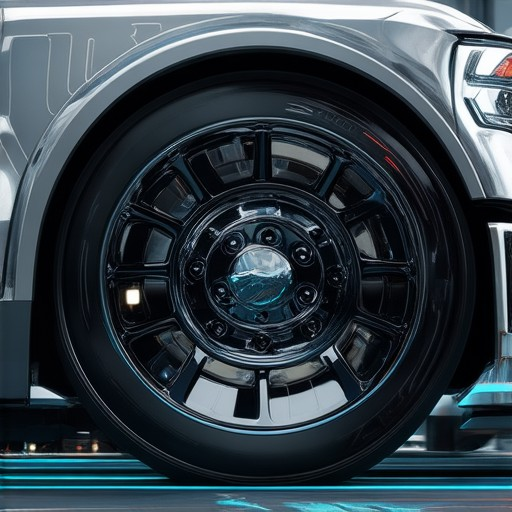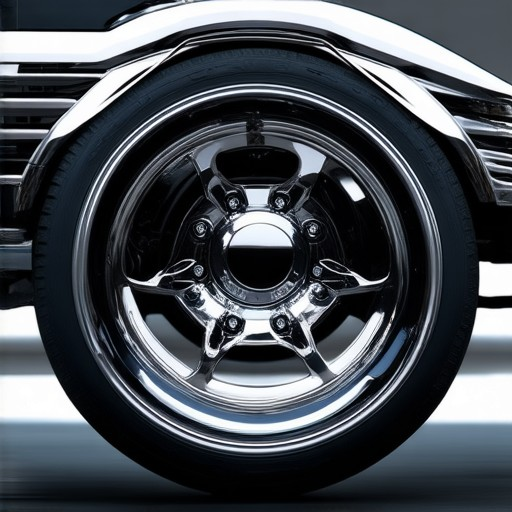Alloy wheels for trucks have become a popular upgrade among truck enthusiasts seeking enhanced performance, durability, and aesthetics. While many drivers may not fully understand the differences between alloy and steel wheels, the switch to alloy wheels can offer significant advantages in terms of both functionality and style. In this comprehensive guide, we’ll explore everything you need to know about alloy wheels for trucks, including their benefits, material comparisons, lifespan considerations, and installation options. Whether you’re looking to improve your truck’s handling, reduce weight, or simply customize its appearance, alloy wheels present a compelling option. Join us as we delve into the world of alloy wheels, examining their pros and cons, maintenance tips, and how they stack up against traditional steel wheels. This guide is designed to provide you with all the information you need to make an informed decision about upgrading your truck’s wheels.
Key Takeaways
- Performance Boost: Alloy wheels reduce weight, enhancing handling, acceleration, and fuel efficiency while extending tire life.
- Safety First: They improve braking performance, reducing stopping distances by up to 15%.
- Aesthetic Appeal: Customizable designs and finishes boost your truck’s style and resale value.
- Cost Consideration: Initial expenses may be offset by long-term benefits like performance and durability.
- Longevity Factors: Lifespan varies from 3 to 10 years, influenced by material quality, usage, and maintenance.
- Maintenance Tips: Regular checks, proper care, and avoiding harsh conditions can prolong alloy wheel life.
- Installation Essentials: Proper tools, alignment, and balancing are crucial for optimal performance post-installation.

What Are Alloy Wheels on a Truck?
Alloy wheels, often referred to as aluminum wheels, are a popular choice for trucks due to their unique combination of strength and lightweight properties. These wheels are typically constructed using a blend of aluminum and nickel, making them highly resistant to rust and capable of withstanding harsh conditions encountered during heavy-duty applications.
Key Benefits of Alloy Wheels for Trucks:
- Lightweight Construction : Alloy wheels are significantly lighter compared to traditional steel wheels. This reduction in weight enhances fuel efficiency and improves overall vehicle performance, particularly on long-haul routes.
- Durability : The advanced material composition allows alloy wheels to endure rigorous use without warping, cracking, or showing signs of wear. They are ideal for trucks that frequently operate in challenging terrains.
- Rust Resistance : Unlike steel wheels, alloy wheels are naturally rust-resistant, making them a more reliable option for trucks exposed to moisture, salt, and other corrosive substances.
- Aesthetic Appeal : Many truck owners opt for alloy wheels due to their sleek and modern design, which can enhance the overall look of the vehicle.
Common Types of Alloy Wheels:
- Cast Aluminum Alloy Wheels : These are the most common type, offering a balance between strength and weight. They are widely available and cost-effective for many truck owners.
- Forged Alloy Wheels : A premium option, forged wheels are created through a precision forging process, resulting in a stronger and more lightweight structure. They are often chosen by those seeking high-performance capabilities.
- Custom Alloy Wheels : Brands like Incubus Wheels offer custom-designed alloy wheels tailored to specific truck models and preferences, allowing for personalized styling and performance enhancements.
Why Choose Alloy Wheels for Your Truck?
Choosing alloy wheels for your truck can lead to improved braking performance, reduced tire wear, and a smoother ride. They are a practical and stylish addition to any truck, catering to both functionality and aesthetic needs.
By selecting the right alloy wheels, truck owners can optimize their vehicle’s performance while enjoying the benefits of a durable and visually appealing component.
Disadvantages of Alloy Wheels
Alloy wheels, while popular for their strength and aesthetics, do have certain drawbacks:
- Higher Cost:** Alloy wheels are typically more expensive than traditional steel wheels. This can be a significant factor when budgeting for vehicle upgrades.
- Susceptibility to Damage:** Despite their strength, alloy wheels can be more prone to damage from road hazards like potholes, curbs, and debris. This can lead to costly repairs or replacements.
- Weight Considerations:** Alloy wheels are often lighter than steel ones, which can improve fuel efficiency. However, this weight reduction may not always be beneficial for trucks or vehicles requiring greater stability.
- Maintenance Requirements:** Cleaning alloy wheels can be more challenging due to their finish. Over time, they may develop discoloration or surface corrosion if not properly maintained.
- Spoke Weakness:** While spokes are usually strong, they can become bent or damaged, affecting the wheel’s balance and performance.
When considering alloy wheels, it’s important to weigh these factors against their benefits, such as improved aesthetics and handling. For the best results, always choose reputable brands like Incubus Wheels to ensure quality and durability.

Comparing Aluminum and Alloy Wheels
When deciding between aluminum and alloy wheels, it’s essential to evaluate factors like weight, durability, cost, and performance.
- Weight: Aluminum wheels are generally lighter than alloy wheels, which can improve fuel efficiency and reduce strain on braking systems.
- Durability: Alloy wheels are typically more durable and can withstand more stress without deforming, making them better suited for heavy vehicles or off-road use.
- Cost: Aluminum wheels are generally more affordable due to their simpler manufacturing process compared to alloy wheels.
- Aesthetic Appeal: Alloy wheels often come in a variety of designs and finishes, making them a popular choice for customization.
- Maintenance: While both require regular care, alloy wheels may need more attention to prevent rusting and corrosion.
- Performance: Alloy wheels tend to offer better handling and stability, especially on uneven surfaces, due to their greater rigidity.
Ultimately, the choice between aluminum and alloy wheels depends on your priorities: if you’re looking for cost-effectiveness and flexibility, aluminum might be the better option. However, if you value durability and style, alloy wheels could be the optimal choice.

Is It Worth Upgrading to Alloy Wheels?
Upgrading to alloy wheels can be a worthwhile investment for many drivers, offering a combination of performance, style, and durability. While the decision depends on personal preferences and driving habits, alloy wheels generally provide significant benefits compared to traditional steel wheels.
Performance Improvements
- Weight Reduction: Alloy wheels are typically lighter than their steel counterparts, which can improve handling, acceleration, and fuel efficiency. This weight reduction can also extend tire life due to reduced stress on the suspension and brakes.
- Braking Performance: Studies show that alloy wheels can reduce stopping distances by up to 15%, enhancing safety during emergency situations.
- Tire Life: The lighter weight distribution can lead to longer tire lifespan, reducing the frequency of replacements.
Aesthetic Appeal
- Alloy wheels often come in a variety of designs, sizes, and finishes, allowing drivers to customize their vehicle’s appearance. Options include polished, painted, and even custom designs to match specific vehicle models.
- They can enhance the overall look of the car, potentially increasing its resale value.
Maintenance Considerations
- While alloy wheels may require occasional cleaning to remove road debris, they are generally easier to maintain than steel wheels.
- However, they are more susceptible to damage from curbs, potholes, and other road hazards, which can lead to dents or warping over time.
Cost Considerations
- The initial cost of alloy wheels can be higher than steel wheels, ranging from $500 to over $2000 depending on the brand, size, and finish.
- Costs can vary significantly between manufacturers, with options like Alpina, BFGoodrich, and Volkswagon offering premium choices.
- It’s essential to balance the upfront expense with long-term benefits such as improved performance and potential resale value.
Conclusion
Whether upgrading to alloy wheels is worth it ultimately depends on your priorities. If you value performance, aesthetics, and long-term tire life, alloy wheels are a solid choice. However, if you prefer to minimize costs and accept the standard performance of steel wheels, sticking with traditional wheels may be more economical.
For those considering an upgrade, researching reputable brands like Alpina , BFGoodrich , and Volkswagen can provide valuable insights into finding the best fit for your vehicle and driving style.
What is the lifespan of an alloy wheel?
The lifespan of alloy wheels can vary significantly depending on usage conditions, maintenance, and the quality of the alloy itself. Generally, alloy wheels are designed to last between **3 to 10 years** under normal driving conditions. However, this can be extended or reduced based on several factors:
- Material Quality: Higher-quality alloy wheels made from aerospace-grade materials tend to last longer due to improved resistance against corrosion, fatigue, and impact.
- Usage Conditions: Daily commuting or city driving tends to be less harsh on alloy wheels compared to off-road driving or racing, which can shorten their lifespan due to increased stress.
- Maintenance: Regular cleaning, inspection, and proper care can significantly extend the life of your alloy wheels. Neglecting maintenance can lead to premature wear and damage.
- Overloading: Driving with excessive weight or frequently transporting heavy loads can strain the wheels beyond their designed capacity, reducing their lifespan.
- Road Conditions: Poor road surfaces, potholes, or debris can cause impacts that may not be immediately visible but can lead to internal structural damage over time.
How to Extend Alloy Wheel Lifespan
To get the most out of your alloy wheels, consider the following tips:
- Regular Inspections: Check for cracks, warping, or loose spokes regularly. Early detection of issues can prevent costly repairs later.
- Professional Maintenance: Have your wheels balanced and aligned periodically to reduce uneven wear and prevent premature failure.
- Use Recommended Tires: Ensure your tires are compatible with your alloy wheels and maintain the correct inflation pressure to distribute stress evenly.
- Avoid Harsh Braking: Excessive braking can generate heat and cause thermal stress, leading to weakened wheel structures over time.
Conclusion
Alloy wheels are a great choice for their strength and aesthetic appeal, but proper care and maintenance are crucial to achieving their full lifespan potential. By considering these factors and following best practices, you can enjoy your alloy wheels for many years to come.
For more detailed insights and recommendations, visit our Incubus Wheels resource hub. Explore our guide on alloy wheel maintenance and discover how to maximize the longevity of your investment.
Don’t forget to check out our selection of high-quality alloy wheels from trusted brands like Alcoa and Borbet , designed to meet the demands of various driving environments.

Replacing Steel Wheels with Alloy Wheels
Replacing steel wheels with alloy wheels can offer several benefits, including improved performance and aesthetics. Here’s a guide to help you through the process:
Tools and Materials Needed
- Jack or floor jack
- Lift or car stands
- Wrenches and screwdrivers
- Wheel chocks
- Tire and wheel adapters (if needed)
- Safety glasses and gloves
- Torque wrench
- Allen keys or socket set
- Brake cleaner or pen
- Wheel balancing kit
Step-by-Step Installation Guide
- Prepare the Vehicle: Park the vehicle on a level surface and engage the parking brake. Place wheel chocks behind and in front of the vehicle for stability.
- Remove the Old Wheels: Raise the vehicle using a jack or lift. Remove the hubcap by prying it off with a flat tool. Unbolt the steel wheel from the hub assembly. Carefully lower the steel wheel and set it aside.
- Install the Alloy Wheels: Attach the alloy wheel to the hub using the provided adapters or spacers if necessary. Tighten the bolts evenly and avoid over-torquing to prevent stripping.
- Check Alignment: Ensure the alloy wheels are aligned properly. Some wheels may come with alignment pins or washers for precise installation. Refer to the vehicle’s owner manual for specific torque specifications.
- Test the Braking System: After installation, test the brakes to ensure they feel stable and responsive. If adjustments are needed, consult a professional or refer to the vehicle’s service manual.
- Balance the Wheels: Use a wheel balancing machine to ensure the alloy wheels are properly balanced. This prevents vibration and improves ride comfort.
- Final Inspection: Inspect the installation for any loose components or damage. Reattach the hubcaps securely and ensure all connections are tight.
Considerations and Tips
- Always wear protective gear when working under vehicles.
- Refer to the vehicle’s service manual for specific instructions and torque specifications.
- Professional installation is recommended for vehicles with complex systems or if you’re unsure about any step.
- Store loose parts in a safe place until installation is complete.
Conclusion
Switching to alloy wheels can enhance your driving experience with improved performance and style. Follow these steps carefully and enjoy the benefits of your new wheels!




0 Comments